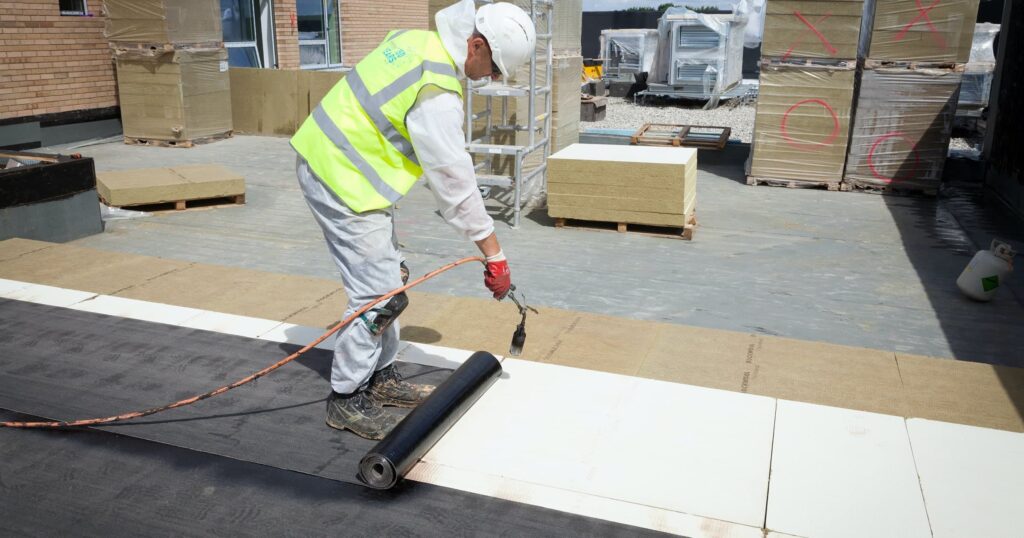
Roof insulation is important in construction for a number of reasons. First, it helps to regulate the temperature inside the building, keeping it cooler in the summer and warmer in the winter.
This can save on energy costs, as the HVAC system won’t have to work as hard to maintain a comfortable temperature. Additionally, roof insulation helps to reduce noise pollution from outside sources. This is especially important in office buildings or other commercial properties, where workers need to be able to concentrate on their tasks without distractions.
Finally, roof insulation can help to protect the building from damage in the event of a fire. By slowing the spread of heat and smoke, insulation can give people more time to evacuate the premises safely. For all these reasons, roof insulation is an essential part of any construction project.
Concrete roof insulation is a type of insulation that is placed on top of roofs to help keep homes and businesses cooler in the summer and warmer in the winter. This type of insulation is made from a variety of materials, including foam, fibreglass, and cellulose, and it works by reflecting heat away from the building. In addition to its thermal properties, concrete roof insulation can also provide acoustical and fire protection.
There are several benefits to using concrete roof insulation. Perhaps the most obvious benefit is that it can help save money on energy bills by keeping the inside of the building cooler in the summer and warmer in the winter. In addition, concrete roof insulation can also extend the life of your roof by protecting it from UV
A concrete roof is a solid investment. Not only does it provide a durable and long-lasting surface, but it also offers superior insulation. By trapping heat inside the home, concrete roofs help to keep energy bills low. Concrete is one of the most popular construction materials in the world, and for good reason.
It is strong, durable, and easy to work with. However, concrete is also an excellent insulator, making it an ideal choice for roof insulation. Concrete roof insulation is often used in commercial buildings, as it can help to keep the interior cool in summer and warm in winter. In addition, concrete is fire resistant and does not rot or decay over time. As a result, it is an ideal material for roof insulation in both new construction and retrofit projects.
In addition to the financial benefits, concrete roofs also offer environmental advantages. They are made from natural materials and do not require the use of harmful chemicals. As a result, they are an excellent choice for eco-conscious homeowners. Concrete roof insulation has a number of environmental advantages.
Firstly, it helps to reduce the amount of heat that escapes from a building, which in turn reduces the need for heating and cooling. This can lead to significant reductions in energy consumption and greenhouse gas emissions.
Secondly, concrete roof insulation can help to reduce noise pollution. By absorbing sound waves, it can help to create a quieter environment both inside and outside of a building.
Finally, concrete roof insulation is durable and long-lasting, meaning that it will not need to be replaced as frequently as other types of insulation. This can help to reduce waste and the embodied energy associated with the manufacture and transportation of replacement materials. In conclusion, concrete roof insulation offers a number of environmental advantages that make it an appealing choice for sustainable construction projects.
Digital Estimating LLC offers accurate cost estimations to help your project stay on budget and according to your set requirements. Using updated costs and materials required you can ensure the success of your construction project.